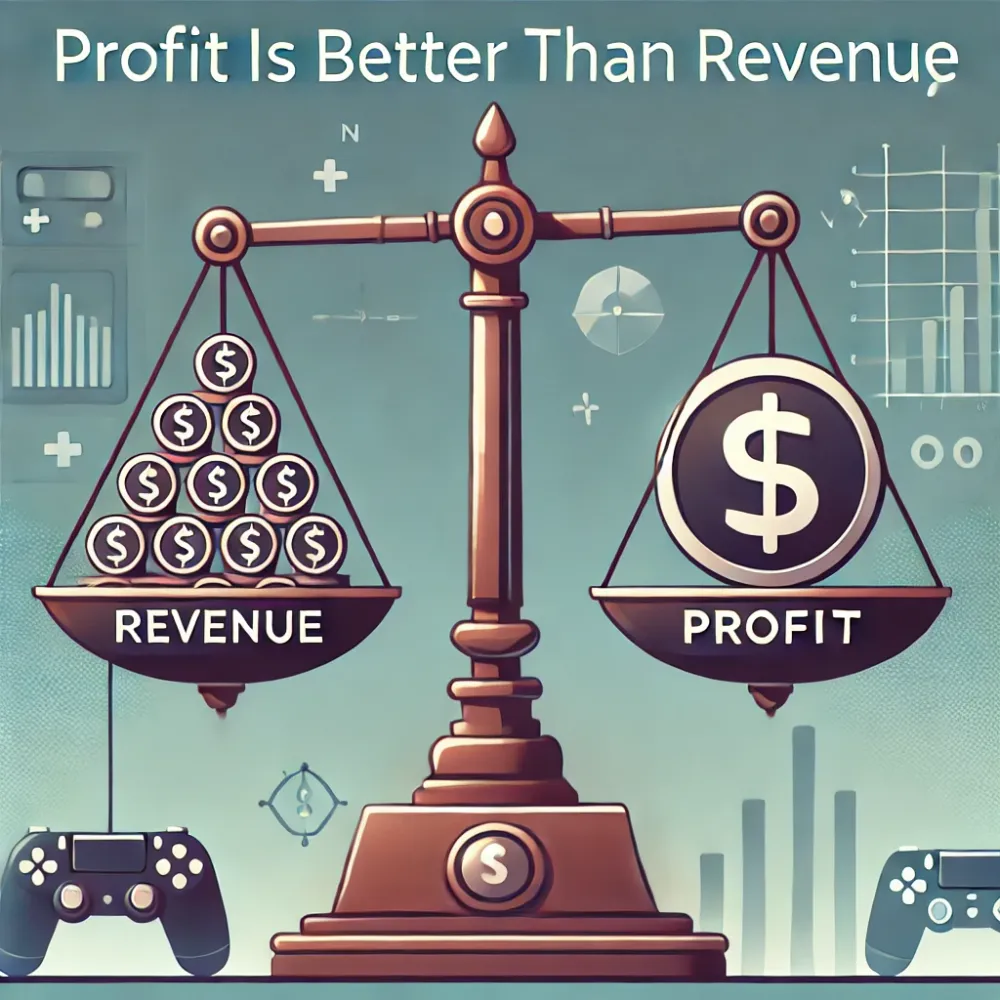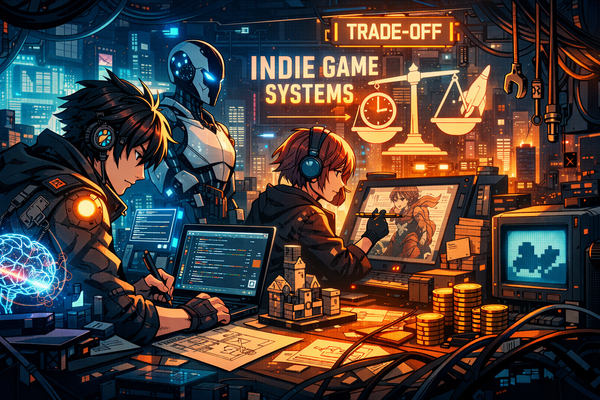Why profit is better than revenue in indie game development
Financial metrics are critical indicators of a project’s success. Two of the most discussed metrics are revenue and profit. While both are important, understanding why profit is better than revenue can help indie developers make more informed decisions that lead to sustainable growth and long-term success.
Understanding the difference between revenue and profit
Revenue is the total amount of money generated from sales before any expenses are deducted. It represents the gross income from all sales of a game, whether through digital downloads, physical copies, or in-game purchases. On the other hand, profit is the money that remains after all expenses have been deducted from the revenue. These expenses can include development costs, marketing expenses, platform fees, and ongoing operational costs(Bleeding Edge Studio).
For many indie developers, seeing a high revenue figure can be exciting, as it suggests that their game is performing well in the market. However, if the costs associated with developing, marketing, and distributing the game are high, the actual profit could be much lower. Focusing on revenue alone can be misleading, as it does not provide a clear picture of financial health.
Why profit matters more than revenue
- Sustainability: Profit is a true measure of a game’s financial success because it accounts for all the costs involved in bringing the game to market. A game that generates a lot of revenue but little profit may not be sustainable in the long term. Profitability ensures that a developer can cover their costs, pay their team, and reinvest in future projects.
- Decision-Making: Focusing on profit rather than revenue allows developers to make better business decisions. For example, a developer might choose to release their game on a platform with lower fees, even if it generates slightly less revenue, because the profit margin would be higher. This approach leads to more strategic decisions that prioritize financial health over mere sales numbers.
- Investment and growth: Profitability attracts investors and allows for reinvestment into the business. Investors are more likely to support a project that demonstrates clear profitability, as it indicates a viable business model. Moreover, profits can be reinvested into new projects, marketing campaigns, or team expansion, driving further growth and success.
- Long-Term viability: Revenue might fluctuate with trends, sales events, or market saturation, but consistent profitability suggests that a game—or a studio—is viable in the long term. This stability is crucial for indie developers who want to build a sustainable career in the gaming industry.
Strategies to maximize profit
To maximize profit, indie developers should consider the following strategies:
- Cost management: Keeping costs under control is essential for maximizing profit. This involves careful budgeting during the development process, negotiating better deals with suppliers, and choosing cost-effective marketing strategies.
- Platform selection: Different platforms have varying fees and revenue-sharing models. Developers should carefully choose platforms that align with their profitability goals. For instance, some platforms might offer higher revenue shares or lower upfront costs, which can significantly impact profit margins.
- Monetization models: Choosing the right monetization strategy is crucial. While premium pricing might generate higher revenue upfront, models like subscription services, in-game purchases, or DLCs can provide a steady stream of income with lower associated costs, increasing profitability.
- Community engagement: Building a strong community around the game can lead to word-of-mouth marketing, reducing the need for expensive marketing campaigns. Engaged communities are also more likely to support additional content, such as expansions or merchandise, which can further boost profit(MoldStud).
The strategic advantage of focusing on profit
While revenue is an important indicator of a game’s market presence, profit is the metric that truly reflects financial success. For indie developers, focusing on profit ensures that their games are not only successful in the short term but also viable in the long run. By managing costs, choosing the right platforms, and implementing effective monetization strategies, developers can maximize profit and build a sustainable business in the competitive world of indie game development.
Tags:
- Indie Game Development
- Profit vs. Revenue
- Game Development Strategy
- Financial Success in Gaming
- Sustainable Growth




